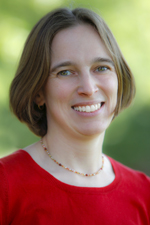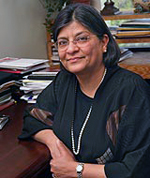Lifespan Initiative on Healthy Aging sows seeds of research
LIHA takes a comprehensive approach to aging research
 |
| Wendy Cadge |
The Brandeis Lifespan Initiative on Healthy Aging (LIHA) has announced the winners of four internal seed grants to foster interdisciplinary aging projects. The grants will support research on memory, sleep loss, living long and dying well, and the effect of religion on aging experiences.
“These grants are designed to encourage investigators to go in new directions, to stimulate and support innovative efforts to combine perspectives from multiple disciplines at Brandeis,” said LIHA director Margie Lachman, a professor of psychology. “The grants also foster partnerships between investigators at Brandeis and other Boston-area institutions.”
LIHA was started last year with the mission to take a comprehensive and interdisciplinary approach to examining biomedical, behavioral and societal factors in healthy aging. “We are committed to advancing scholarship that supports optimal aging by targeting or preventing problems before they develop,” said Lachman.
Grant winner Wendy Cadge, a sociologist who studies the intersection of religion and medicine, will draw on interviews with older people describing spiritual experiences in their daily life to investigate how religion and spirituality shape experiences of aging. She is undertaking this project with colleagues at Boston University.
 |
| Sarita Bhalotra |
Heller School professor Sarita Bhalotra named her project, “Living long, dying well: the desired outcome of healthy aging.” She will research “this most universal and inescapable of human experiences” with the goal of creating an interdisciplinary course on death and dying in collaboration with several colleagues at Brandeis. Ultimately, her goal is to start a conversation to inform end of life policies. “I argue that a healthy aging agenda must incorporate a healthy approach to dying,” said Bhalotra. “Current policy and program approaches offer little beyond biomedical options. Most people have a vision about an ideal death experience that incorporates psycho-social concepts, yet few will achieve it under current conditions.”
Nicole Rosa, a second-year PhD student in psychology will use her seed grant to explore the role of self-reference—connecting new information to the self in some way—in false memory. “My hope is that the findings from this study will better characterize the mechanisms involved in false memory and provide some insight into methods that may help reduce false memory,” said Rosa, who is undertaking the project with colleagues at Boston College. “False memories are not only disconcerting, but also put older adults at risk of fraud and abuse.” Psychologist Angela Gutchess is Rosa’s advisor.
Nichola Rice Cohen, a postdoctoral fellow whose advisor is neuroscientist Robert Sekuler, won a grant to study the effects of sleep loss on the spatial and temporal dynamics of movement control in older adults. The subjects will be tested on their ability to reproduce sequences of hand movements using a data glove before and after 64 hours of sleep deprivation, and following recovery sleep. “This work will have important implications for developing guidelines and recommendations to ensure the safety of the elderly in the home and the workplace,” said Cohen. She is collaborating with colleagues at Beth Israel Deaconess Medical Center in Boston.
The lifespan initiative plans on awarding more seed grants in fall 2010. Information will be posted on the LIHA Web site.





